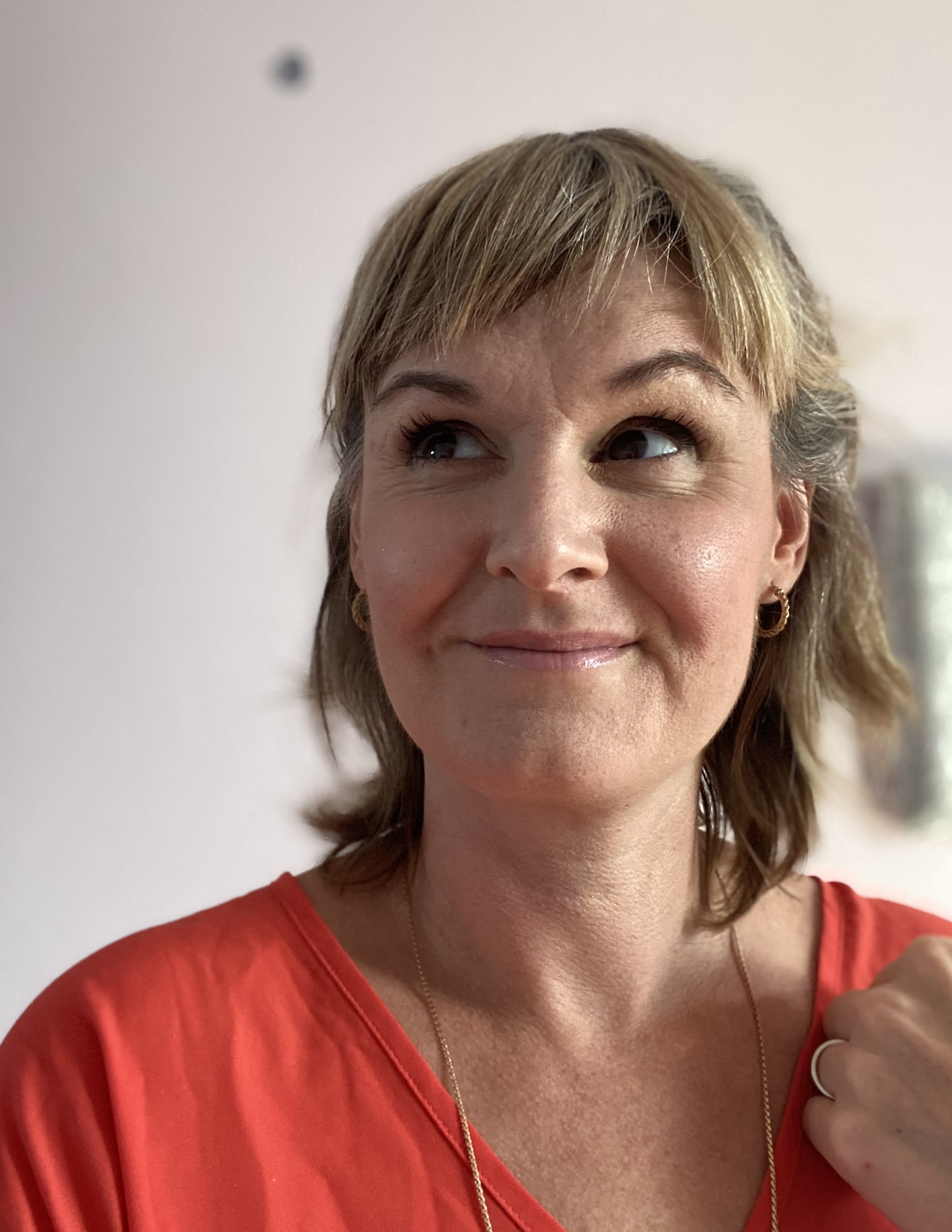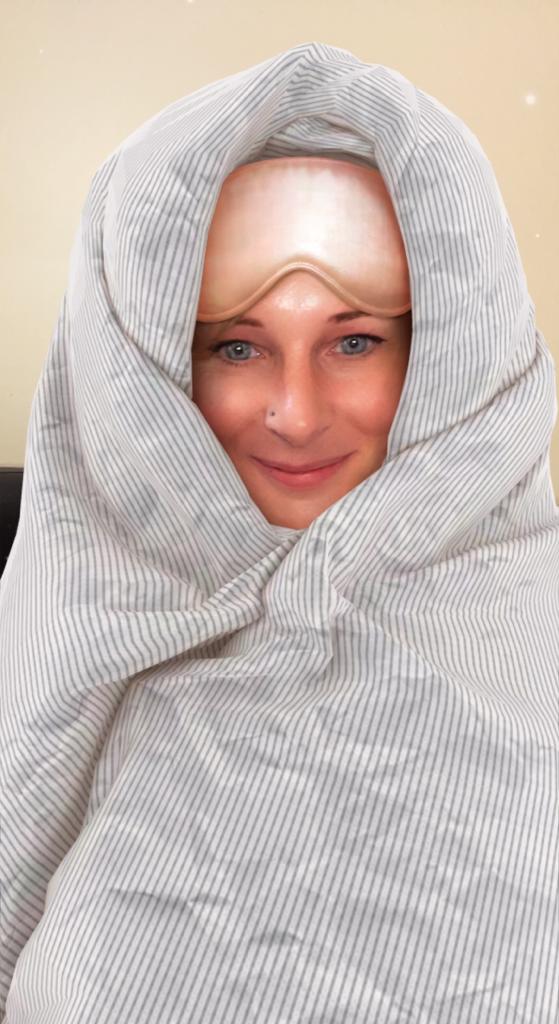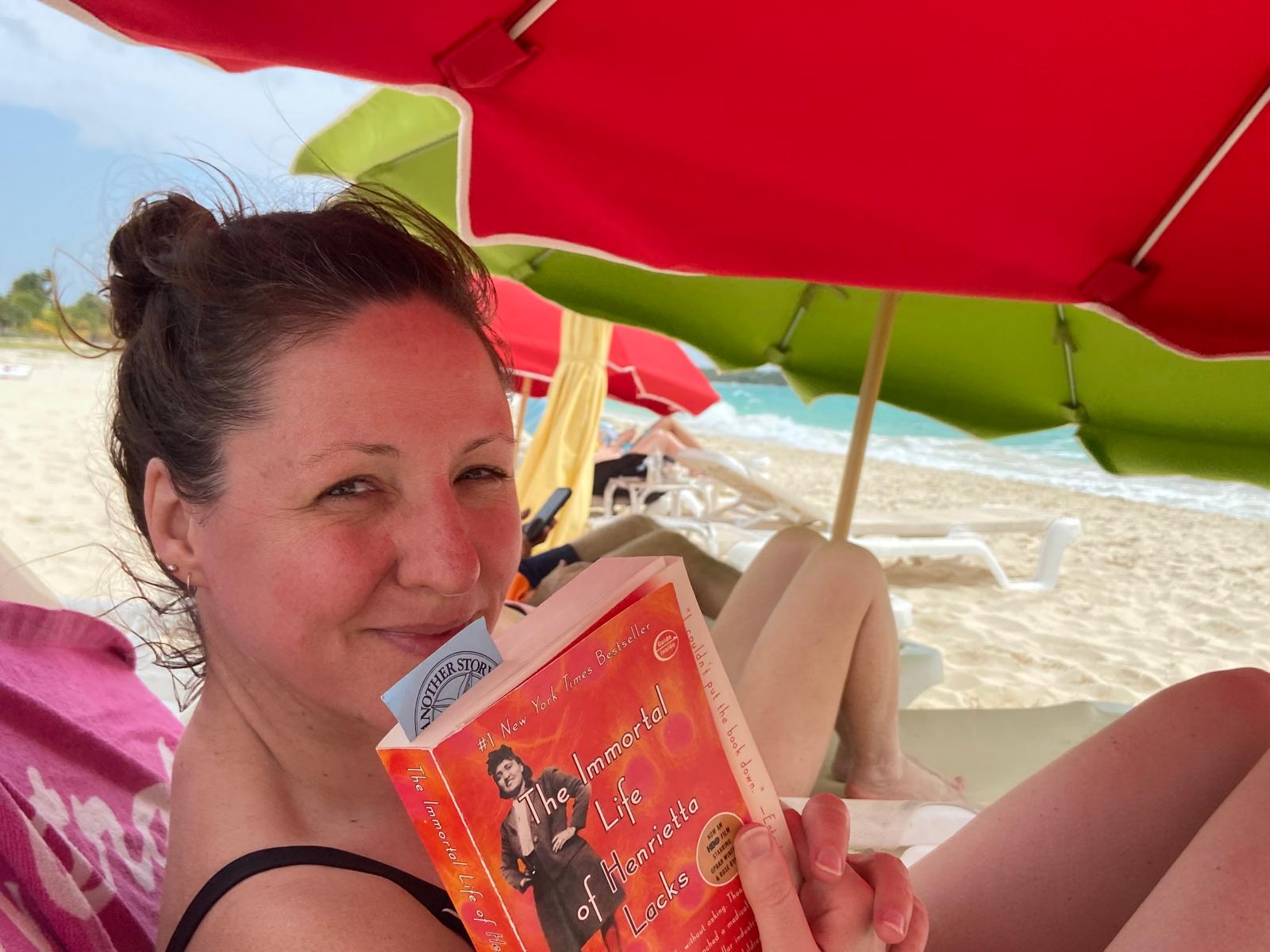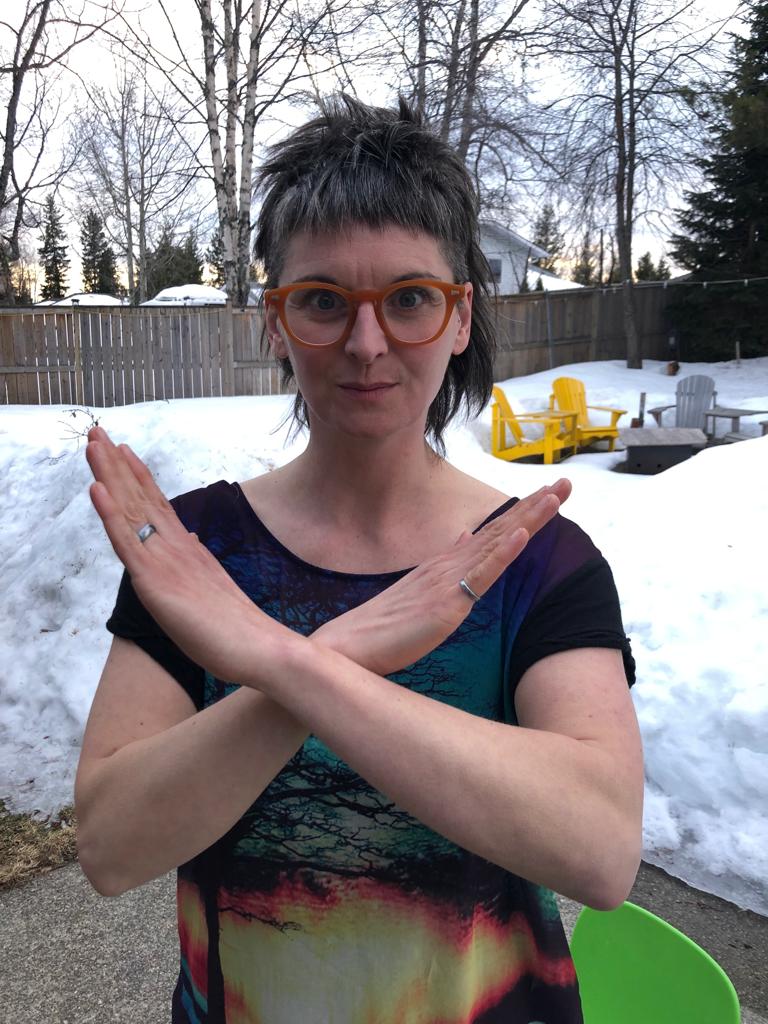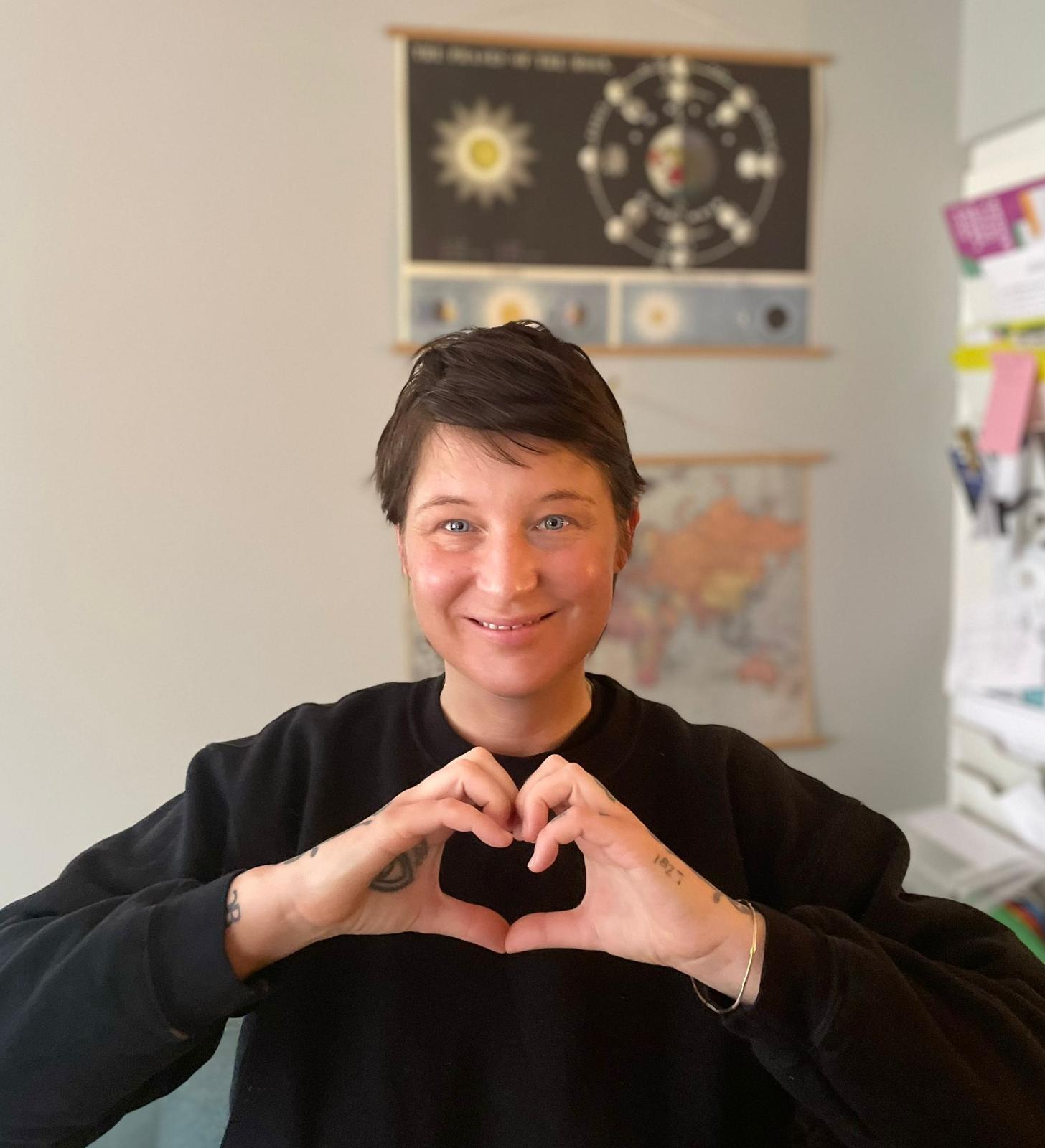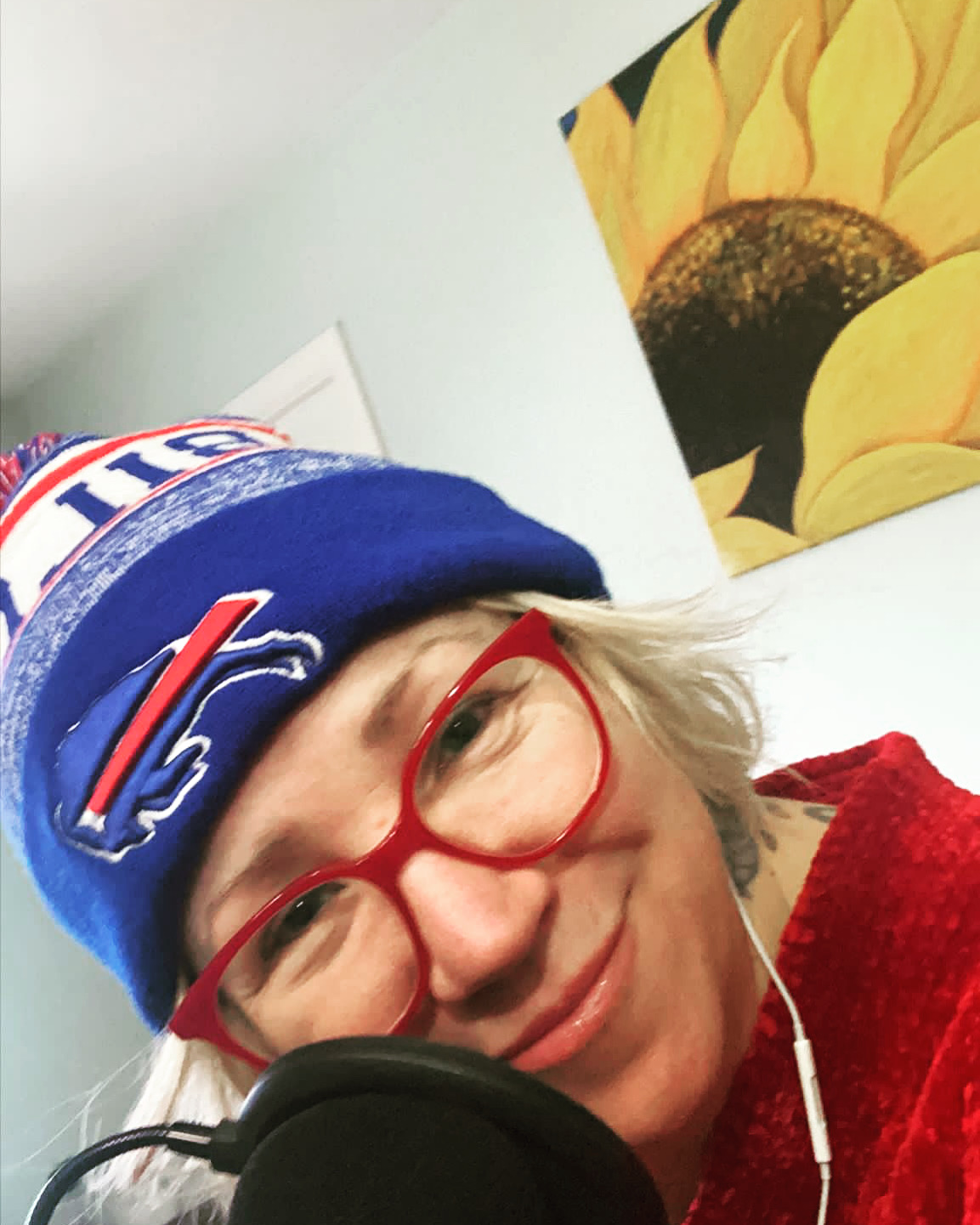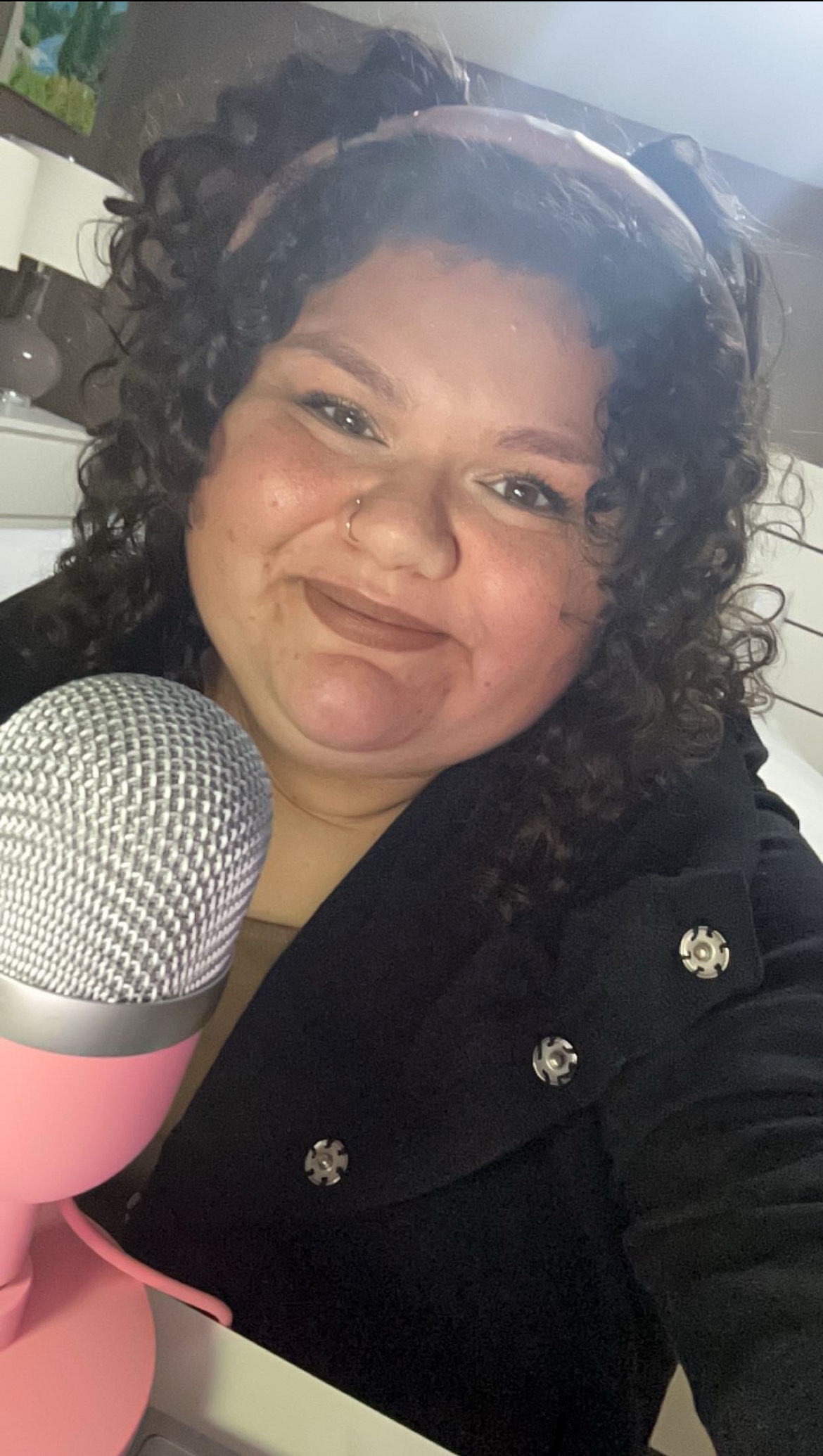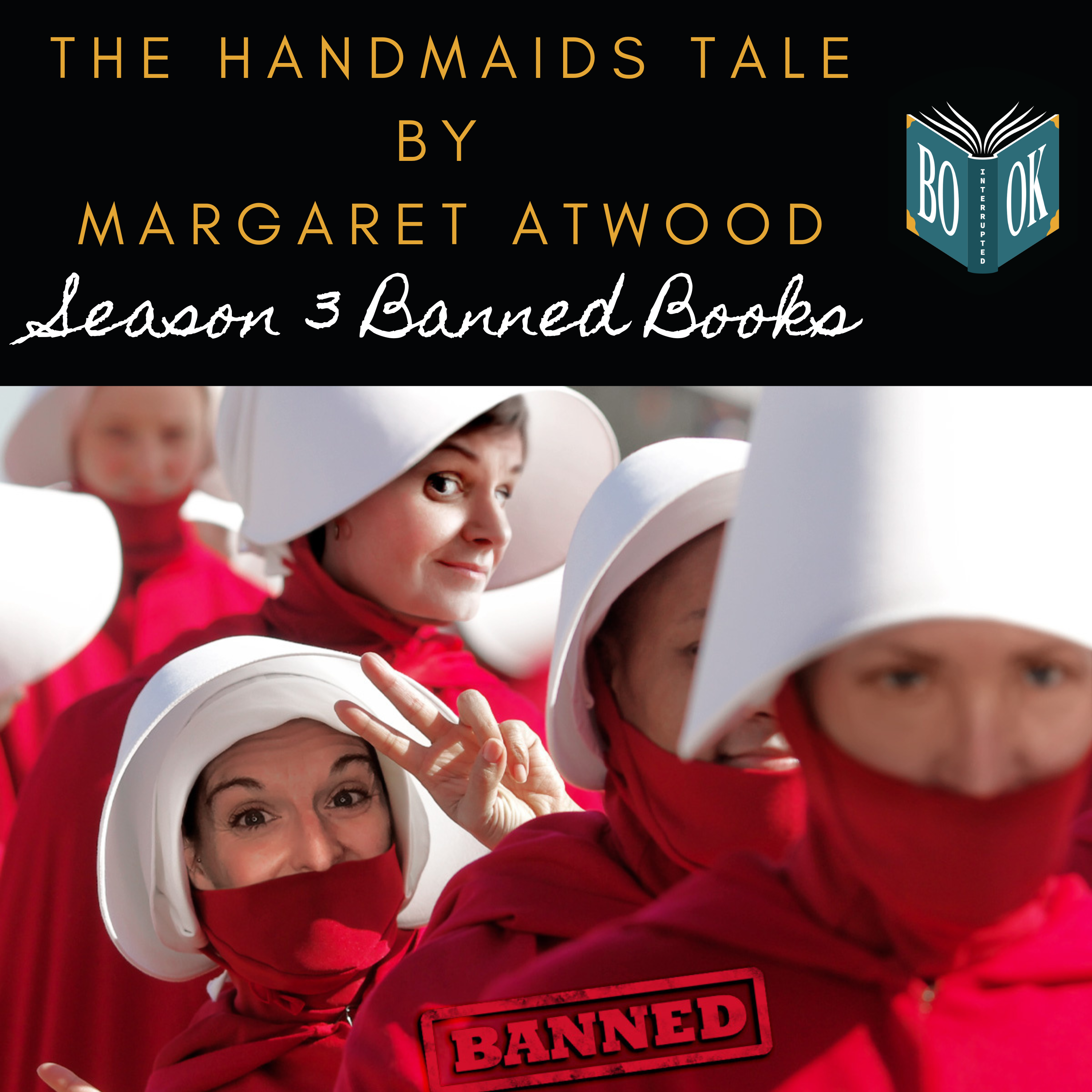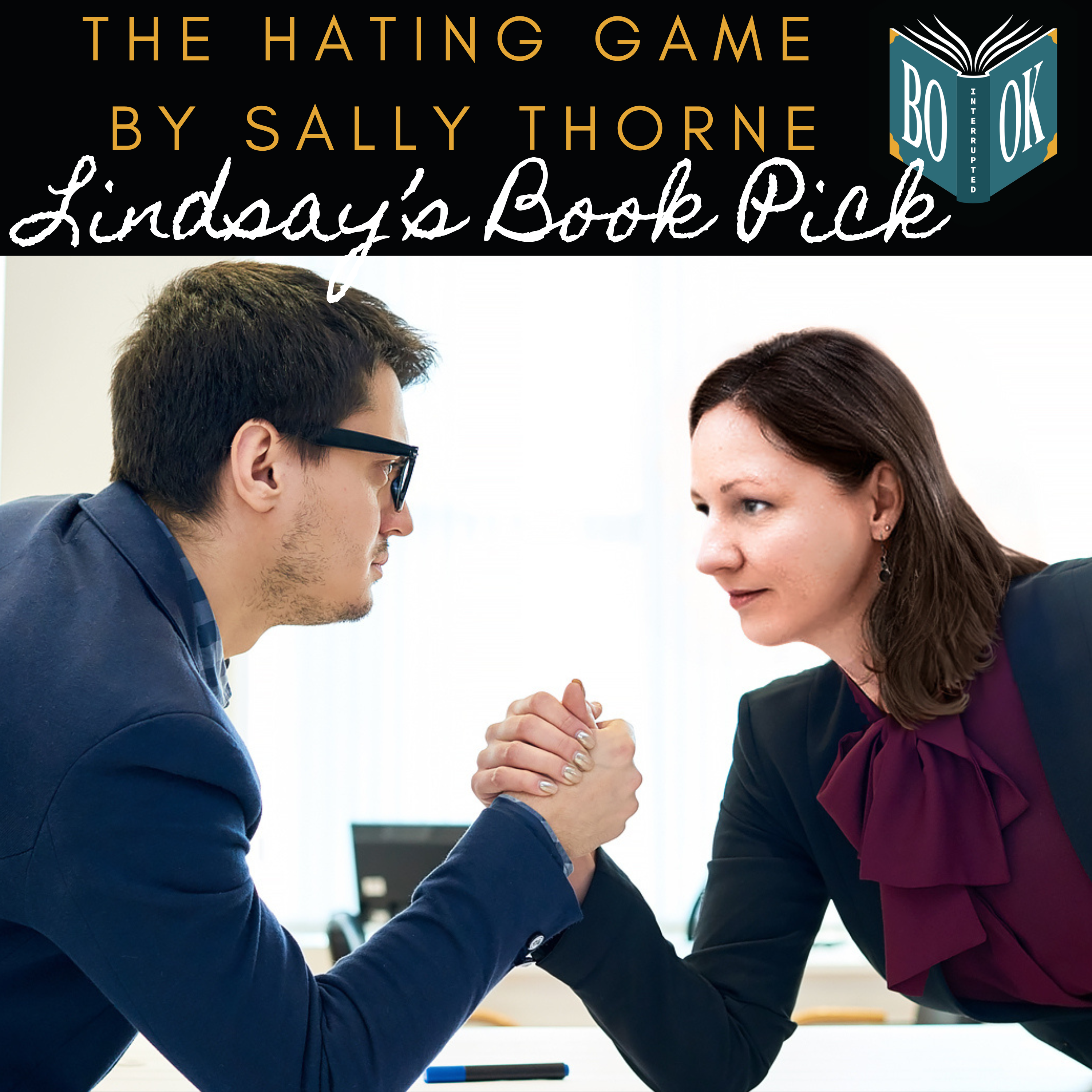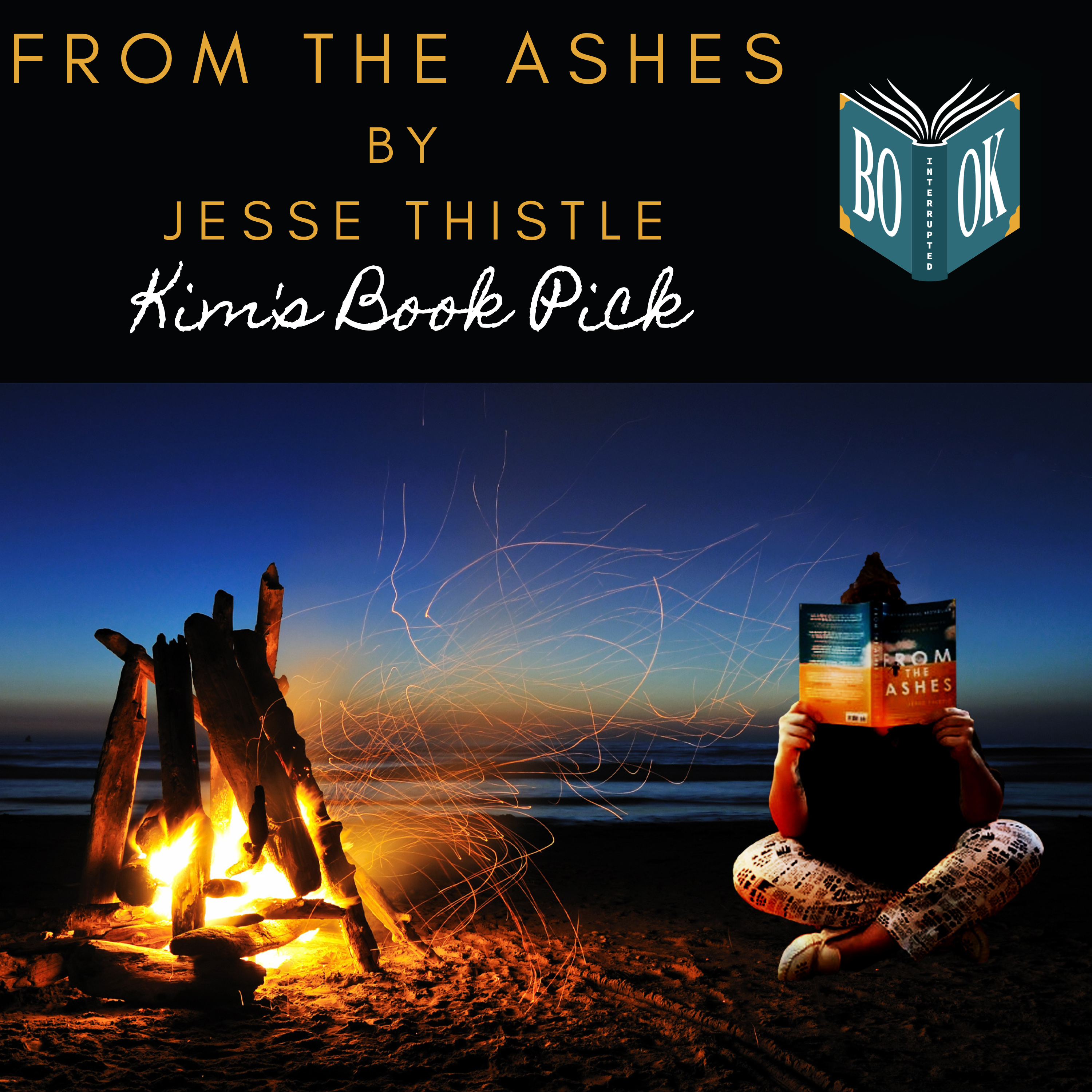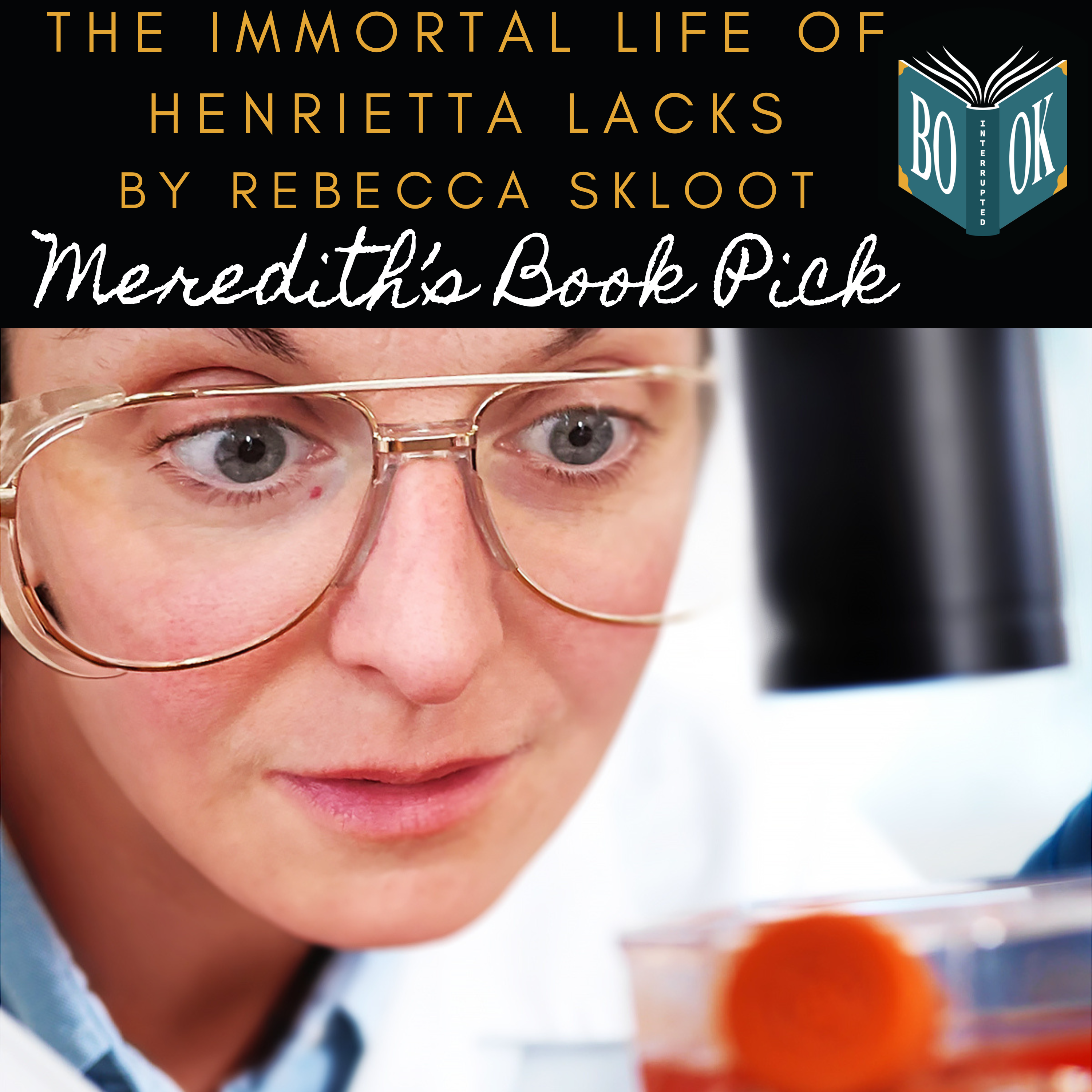[00:00:00] Speaker A: Would you like to attach a face to that voice? When you subscribe to the Book Interrupted YouTube channel, you get to see everybody as well as check out a bunch of extra Book Interrupted videos and music content. Visit the Book Interrupted YouTube channel to see what you've been missing.
[00:00:15] Speaker B: Parental guidance is recommended because this episode has mature topics and strong language.
Here are some moments you can look forward to during this episode. Episode of Book Interrupted whole countries have.
[00:00:27] Speaker C: Brand this book over the years.
[00:00:29] Speaker D: Part of you wants to be like, I really admire your work, and part of you wants to give them their privacy.
[00:00:33] Speaker E: That's why I'm here to jump in, even though I was trying to scare you guys and it didn't work.
[00:00:38] Speaker F: Oh, look at us humans. We're so smart. We hacked nature, but really, 50 years later, it's like, ovaries are exploding.
[00:00:44] Speaker D: And so they've got the power, and so they want to have all the things.
[00:00:47] Speaker C: She's like, do we really want the government in charge of our bodies?
[00:00:51] Speaker E: This is a real thing that's happening. There are a lot of people that are having fertility issues.
[00:00:55] Speaker F: The when she was describing that, it just sounds like today and yesterday and probably tomorrow.
[00:01:00] Speaker D: My body inflammation is the goal.
Something new without my body is all information is without.
Trying to learn something without being disrupted.
Mind, body and soul inspiration is without.
And we're gonna talk on book interrupted.
[00:01:35] Speaker B: Welcome to season three, our banned book season. During this book cycle, we're reading The Handmaid's Tale by Margaret Atwood. This book has been banned for being sexually explicit, violently graphic and morally corrupt. If you'd like to follow along, this book cycle is from December 1 to February 1.
[00:01:55] Speaker A: The Handmaid's Tale is a futuristic dystopian novel by Canadian author Margaret Atwood. Published in 1985, the book received critical acclaim, helping to cement Atwood's status as a prominent writer of the 20th century. Not only was it deemed well written and compelling, but Atwood's work was notable for sparking intense debates both in and out of academia. It is set in a near future New England in a patriarchal totalitarian theonomic state known as the Republic of Gilead, which has overthrown the United States government. Ofred is the central character narrator and one of the unfortunate handmaids under the new social order, who have only one purpose to breed. In Gilead, where women are prohibited from holding jobs, reading and forming friendships ofred's will to survive is an act of rebellion. The Handmaid's Tale won the 1985 Governor General's Award and the first Arthur C. Clark Award in 1987. It was also nominated for the 1986 Nebula Award, the 1986 Booker Prize and the 1987 Prometheus Award. In 2022, The Handmaid's Tale was included on the big Jubilee read list of the 70 books by Commonwealth authors selected to celebrate the platinum jubilee of Elizabeth II. The book has been adapted into a 1990 film, a 2000 opera, a 2017 television series, as well as other media banned by states, school boards, libraries and sometimes whole countries for being sexually explicit, violently graphic and morally corrupt. The novel explores themes of subjugated women in a patriarchal society, loss of female agency and individuality, suppression of women's reproductive rights, and the various means by which women resist and try to gain individuality and independence.
[00:03:50] Speaker B: All right, so it's personal journal time. Let's see what the members of book interrupted thought outside the group.
[00:03:55] Speaker G: This is my first personal journal for handmaid's tale by Margaret Atwood. I didn't know anything about this story, and now I've read almost half of it. So I should have made my personal journal before now, and I didn't, so there we go. I'm enjoying the book so far.
[00:04:16] Speaker F: I really like it.
[00:04:17] Speaker G: It's one of those books that I'm looking forward to reading, which has been a while, I think, since I've had that experience. It's a welcome experience. I like it when I want to.
[00:04:28] Speaker F: Read a book, I guess.
[00:04:29] Speaker G: Obviously that seems stupid, but when you're in a book club and you are all of a sudden regularly reading books, you realize that there's different versions of enjoyment, and sometimes it's hard and you.
[00:04:41] Speaker F: Have to force yourself to read it.
[00:04:43] Speaker G: This is not the case with this book. I don't really want to say anything. I want you to listen to the podcast. I want you to read the book. That's what I want. Let's see what it says on the back. In Margaret Atwood's Dystopian, future environmental disasters and declining birth rates have led to a second American civil war. The result is the rise of the Republic of Gilead, a totalitarian regime that enforces rigid social rules and enslaves the few remaining fertile women. Horrible Ofred is one of these, a handmaid bound to produce children for one of Gilead's commanders? Deprived of her husband, her child, her freedom, and even her own name, Ofred clings to her memories and her will to survive. At once a scathing satire, an ominous warning, and a tour de force of narrative suspense, the Handmaid's Tale is a modern classic.
I will agree with that. Narrative suspense sometimes well, suspense is good. I was going to say sometimes when.
[00:05:46] Speaker F: It takes an author, like, a while.
[00:05:48] Speaker G: To get going, I get impatient. But in this book, I am not experiencing that. I am enjoying the suspense. I'm enjoying the buildup. Like I said, I'm almost halfway through it, and it's really only just beginning.
Hopefully that doesn't deter anyone. Anyway, I'm going to happily continue to read this.
[00:06:08] Speaker F: Let me predict the ending. That's what I wanted to do.
[00:06:11] Speaker G: First of all, I think I will.
[00:06:12] Speaker F: Say that I liked this book.
[00:06:13] Speaker G: How about that? I'm going to predict my recommendation as well as the ending. What's going to happen?
Ofred and Nick are going to bust out and join a revolution, and she's going to find her child and her husband and they're all going to live happily ever after.
[00:06:33] Speaker H: Is that too much to ask?
We will see.
[00:06:37] Speaker I: It's season three, and that means we're doing all banned books. Our first book up is The Handmaid's Tale by Margaret Atwood. In the group discussion, we focus mainly on reproductive rights and that aspect of this book. But it's not just the reproductive rights that are being controlled in this Dystopia. It's also that women are not allowed to have a job or have their own money, own property, or to seek knowledge. They're not allowed to read. And I can't even imagine if the world went from where it is now, like my world, to a place like that, because part of my identity is largely centered around my joy of learning and the pride I take in work.
I love reading, like maybe many people who listen to this podcast, I love books. So imagine that was taken away from you, and Margaret Atwood will help you imagine that being taken away from you.
[00:07:36] Speaker D: I first read this book when I.
[00:07:37] Speaker I: Was in high school, and back then.
[00:07:40] Speaker D: I enjoyed it quite a bit.
[00:07:41] Speaker I: But I also think that when I read it, it seemed more like fiction than it probably will today.
Looking at it with older eyes, knowing what the world is like, I'm more up in current affairs than I used to be, and also seeing things the overturning of Roe v. Wade in the States and the clawing back of reproductive rights for women down there. This book really seems like it's hitting really close to home, and I know that because Atwood doesn't write anything that does not have a precedent. The subject matter in this book is the reality for some women in the world already, or at least portions of it.
[00:08:26] Speaker D: So Margaret Atwitz always a joy to.
[00:08:29] Speaker I: Read because she is a true artist in her craft and looking forward to the discussions that come up, not just about reproductive rights, but the right to knowledge. And how when you take away somebody's rights, basically all of them, what that can mean for their sense of know, are we trying to erase their identity completely? And I think we're going to hear that in the main character ofred's voice in this book.
[00:08:56] Speaker B: All right, here's my first personal journal for The Handsmaid's Tale. This will be the third time I've read this book. I read it the first time when I was in high school.
[00:09:05] Speaker C: I remember I'm fairly traumatized in high.
[00:09:07] Speaker B: School by reading it, but I didn't necessarily remember everything. I just remember that these women basically were just enslaved to make babies, but I didn't remember the details. So the reason I read it the second time is because somebody gifted me The Testaments, which is the sequel to The Handsmaid's Tale. And I thought it'd be interesting to read The Handsmaid's Tale again before reading the sequel. I'm so glad I did because it was like seamless you would never guess that the sequel was written 30 years later. It was really great. I probably read the Testaments again now now that I'm reading the Handsmade Tale again.
Anyway, reading it again.
[00:09:47] Speaker C: I also forgot things. It's just interesting when you read a.
[00:09:50] Speaker B: Book more than once because you're picking up things that you forgot or because you already know the ending. Then when certain characters come into play.
[00:10:00] Speaker C: You know what's happening.
[00:10:02] Speaker B: So it makes all the little observations she does in the beginning so much more impactful because you're now remembering them because they relate to something that happened at the end. And I also forgot how slowly she unravels the world and ofred's world before her new horrible reality, and then during.
[00:10:24] Speaker C: Her horrible reality also, because now I'm.
[00:10:27] Speaker B: Relating to what she wrote in the second book for some of the characters that are falling into this book. So it's making me see them in.
[00:10:36] Speaker C: A different light as well.
[00:10:37] Speaker B: So if you haven't read The Handmaid's Tale, I would suggest it. It's really interesting for this time because of what happened in the US. Because it's basically these women are no longer in charge of their own bodies. So I think it's very interesting that we're reading this right now. I think it has even more of a big impact because this is set in the US. As well. This world is within the US. So I think there's going to be some great discussions about this book as a group. And if you haven't read The Testaments and have only read The Handsmaid's Tale, I would suggest you read The Testaments as well.
[00:11:11] Speaker C: All right. Can't wait to see what everyone else has to say.
[00:11:14] Speaker B: This interruption is brought to you by unpublished do you want to know more about the members in Book Interrupted? Go behind the scenes. Visit our website at www.bookinterrupted.com. Book Interrupted.
[00:11:30] Speaker H: Okay, I want to hear something crazy. This isn't the crazy part, but I go to Tim Hortons every day and.
[00:11:39] Speaker G: I get a coffee.
[00:11:41] Speaker H: And recently I noticed that they have an ad on their order screen that says, bring your own cup and you'll.
[00:11:52] Speaker A: Save $0.10 or something.
[00:11:53] Speaker H: And I thought, that's so cool because I want to bring my own cup. Of course I want to save money. But the main reason I like that is because then you save the cup, you cut back on waste by not using disposable cup that your coffee normally comes in. So the next day I see this ad, and the next day I go, okay, I'm going to remember my cup. I get my cup, I bring it with me. I go to Tim Hortons, I get to the window, I say, I have my own cup. And they're like, okay, what would you like in it? And I'm like, I would like a large coffee with one milk and one sugar. And so they're like, okay, great. That's 210 or whatever it is, with the ten cent discount. And so I pull up to the window and they take my payment, and I'm like, okay, maybe they need to take my payment before they take my cup. Like, again, this is my first time. And then they hand me a coffee in a disposable cup, and I'm like, oh, no, I brought my own cup. And they're like, oh, yeah, we're not allowed to fill it. And I'm like but there's an ad. And they're like, no, we still gave you the special price. And I'm like, okay, but that is not why I'm doing this. I'm doing this to avoid this cut that you're giving me. They're just like I know, I know, I know. Clearly, the woman at the window did not want to engage in a conversation with me about it, nor should she have to, because it's not her promotion. But I just was mind blown. Tim Hortons, what are you doing? Take away that promotion or do it properly. You're supposed to be saving the environment through lowering your cup usage, not saving me ten loser cents and still giving me the garbage. And it's just so crazy to me to think about. So if I drive around with an empty cup, I can go to Tim Hortons and be like, hey, I brought this, so charge me less. That's it.
[00:13:43] Speaker A: I just can't even book Interrupted let's.
[00:13:48] Speaker B: Listen in to this episode's. Group discussion.
[00:13:50] Speaker C: Welcome to season three, where we're starting.
[00:13:53] Speaker B: Off the season with The Handsmaid's Tale. And this is our first group discussion.
[00:13:58] Speaker D: By the group discussion by us.
[00:14:01] Speaker B: Oh, The Handmaid's Tale by Margaret Atwood.
[00:14:04] Speaker D: This season, we're doing all banned books.
[00:14:08] Speaker C: All banned books.
[00:14:11] Speaker D: Can you tell us why this book was banned? I could.
[00:14:14] Speaker C: Margaret Ackwood is actually quoted as saying it's been banned by states, libraries, and even like, whole countries have banned this book over the years. It's a very banned book.
[00:14:27] Speaker E: Whole countries?
[00:14:28] Speaker C: Yes. Whole countries have banned this book.
[00:14:31] Speaker E: Do you know what countries yes.
[00:14:33] Speaker C: Hold on, I'll look it up.
[00:14:35] Speaker D: It's been banned for being sexually explicit, violently graphic and morally corrupt.
Well, I guess Dystopian novels are like that. Isn't that the point?
[00:14:45] Speaker E: That's the point, totally.
[00:14:47] Speaker C: Do you know that Margaret Atwood says that she doesn't put anything in her novels that hasn't actually happened in history?
[00:14:54] Speaker D: Oh, I was going to say that everything has to be for you. Yeah, when she wrote it, she wanted to make sure everything had a precedent. Everything in this book, although it's fiction, is something based on something that's happened before, like controlling a woman's reproductive rights, for example, which, surprisingly, you know, it still happens today, even in places where it stopped.
[00:15:14] Speaker C: Maybe it was banned in Portugal and in Spain.
[00:15:18] Speaker D: Oh, the whole country.
[00:15:20] Speaker C: Yeah, those are the countries that banned it. And then many others over the years, many other states and libraries and school boards and lots of people have been in this book.
[00:15:29] Speaker E: I like her. I saw her on we used to have to take the little ferry to get to the Porter Airlines, which is in Toronto on the island. And now you can walk. But we used to have to get a ferry. She was on the ferry with me. She's very little. She's very little. Like, really, really little compared to, like yeah, but I was like, oh, there's Margaret Atwood. I didn't say anything, but I do like her.
[00:15:52] Speaker C: You should have seized the day.
[00:15:53] Speaker D: I know.
[00:15:53] Speaker C: It's not so cool, but I would do it anyway.
[00:15:55] Speaker E: Yeah.
[00:15:56] Speaker D: You didn't talk to the Magic Man.
[00:15:59] Speaker C: That's true.
[00:16:00] Speaker F: Magic.
[00:16:01] Speaker D: When you had the opportunity.
[00:16:02] Speaker F: You just said cryptic texts to me.
[00:16:05] Speaker D: I'm in line behind the Magic Man. It's tough. Like, if you see somebody you admire in public, part of you wants to be like, I really admire your work, and part of you wants to give them their privacy to really show that you do respect them by respecting their private space.
[00:16:22] Speaker E: It didn't look like anyone approached, and she's pretty famous, but maybe you could.
[00:16:30] Speaker C: Have casually been near her. I'm like. Oh, margaret atwood.
[00:16:35] Speaker D: Whoa. Sorry.
[00:16:36] Speaker C: I would do something like that.
[00:16:37] Speaker D: Oops, sorry.
[00:16:38] Speaker E: I just banged into you by accident.
[00:16:41] Speaker D: Try to have a contrived meet.
[00:16:44] Speaker C: Yeah, definitely.
[00:16:46] Speaker D: Yeah, I guess I did with the Magic Man.
[00:16:48] Speaker C: What's his name again? Will something.
[00:16:51] Speaker D: Arnett.
[00:16:51] Speaker C: Arrested. Will arnett from Arrested Development.
[00:16:54] Speaker D: Hilarious.
[00:16:55] Speaker C: But you know what? I wouldn't because I can't keep it together. I couldn't even remember his name. I didn't even say arrested development. In my text to cable.
[00:17:03] Speaker D: She's like, the magic bands are lying with me at Whole Foods. And she's like, what? You should have just gone bees?
I don't know. Do you watch Arrested Development? They go on about bees and beads.
[00:17:15] Speaker C: That would be so random if you didn't mention Arrested Development, or he would.
[00:17:21] Speaker D: Know he acted it. He had to memorize the lines, sound like he wasn't paying attention.
[00:17:26] Speaker E: I'm sure people do that to him. And he's probably like, oh, God, I.
[00:17:29] Speaker D: Know I wouldn't do it.
[00:17:31] Speaker E: Did you guys read this book in high school?
[00:17:35] Speaker C: Yes.
[00:17:36] Speaker E: No, that's when I first read it, and I just loved it. I loved all those kind of dystopian books.
[00:17:44] Speaker D: But it was just the way that.
[00:17:46] Speaker E: She describes things is so clear and so vivid, and you feel we were talking last season about not manipulating your emotions. Not that she's but your emotions go on that journey for sure with offered and with all the characters and the idea that that could happen just seemed so horrible, but also that it could like it just always felt so probable and so real that our society could go to that point. But then also just so scary as a woman and as a young woman, as a teenager. When I first read it yeah. Just seemed such a frightening thing. I've read it maybe three times I think. And I don't really reread books. I know Kim doesn't either. But I've read it three times. I have watched the series, or some of it. I stopped watching after a while, but I've read the follow up book. What's it called?
[00:18:36] Speaker D: The Testament. Testaments.
[00:18:38] Speaker C: Yeah.
[00:18:38] Speaker D: Me too. I'm going to read it.
[00:18:40] Speaker E: That's why. That's why I'm here, to jump in. Even though I was trying to scare you guys and it didn't work.
[00:18:48] Speaker D: We all read this in high school. We all also went to the same high school.
[00:18:52] Speaker E: It had something to do, and Kim did.
[00:18:55] Speaker C: Maybe that's why Kim didn't go to the same high school as us.
[00:18:57] Speaker D: Right. I haven't read it since high school.
[00:18:59] Speaker C: So is this your first?
[00:19:02] Speaker D: Whoa.
[00:19:03] Speaker C: So what are you thinking so far?
[00:19:05] Speaker D: I like it. Yep.
[00:19:06] Speaker F: And I'd say I'm a little shy of halfway through, so I'm enjoying it. I look forward to reading. It's one of those books that I'm happy to put myself to bed early for.
So that's really important because you know how I love TV time to the point of not being able to go to bed even at the right time to get up the following day for work. So the book needs to be pretty good for me to shut down the TV an hour early.
[00:19:35] Speaker D: Right.
[00:19:35] Speaker F: And it is.
[00:19:36] Speaker D: It's good.
[00:19:36] Speaker F: Even longer. Last night, I was like, well, it didn't happen, so TV still won. But I thought about maybe even going to bed at 830 and just starting to read.
But I watched a documentary instead.
[00:19:49] Speaker D: But you didn't. But I did. I thought about it, though. I haven't read it since high school. I just started again.
[00:19:57] Speaker F: Are you enjoying it? Do you find that you remember? Is it some parts are like new, or I'm not going to remember all of it.
[00:20:03] Speaker D: I don't have a good recall on stories, even movies. If I've seen movies before, I can watch the same movie over and over and be like, my brain will retain. I'm like, I don't need to retain this information, so I will enjoy it that way. I've read other Margaret Atwood books, and she's a true master at her craft. So she's quite enjoyable to read. The way that she weaves, the know, she holds back so that she slowly feeds you the story out and you don't get all the facts right up front. Yeah. So I will enjoy it, I think. But I started watching the TV show.
[00:20:38] Speaker F: Just because I'm saving it. Like, you're doing it because you're reading it. I'm like, I can't watch that show now until I'm done this book.
[00:20:45] Speaker E: No, do the book first.
[00:20:46] Speaker F: Absolutely.
[00:20:47] Speaker E: It's a little bit different. And also it's more frightening in your head, I think, than it is. I mean, it's still frightening on the screen, but it's more frightening in your head, for sure.
[00:20:57] Speaker C: Who does the series? Where do you get it from?
[00:21:00] Speaker D: Is it Netflix?
[00:21:01] Speaker E: It was on Crave in but, or here, but I think you can get it now somewhere else.
[00:21:08] Speaker C: I knew I was just curious because I know the end of the story. This is my third reading, and because I've read The Testaments, which I find it interesting because the way they've done the characters in the sequel, they're in this book, so it changes my perceptions of them. So it's changing the story for me.
[00:21:29] Speaker F: Oh, that's cool. From reading the sequel, you're having a new experience.
[00:21:34] Speaker C: Yeah. So maybe, Lindsay, you want to read it a fourth time because now that I'm reading it, it's changing. There's certain characters I hated in this book, and now it's a bit different.
[00:21:46] Speaker D: It humanizes them a bit.
[00:21:48] Speaker C: Yeah, I know their backstory.
[00:21:50] Speaker D: Now, this goes back to that conversation we had where your ideas of a person are based on your first impressions of them and when in their life you met them. So that's interesting because you thought one thing in the one book, and now that you know how the other book, you have a completely different idea of who they are. Such a master writer, am I right?
[00:22:07] Speaker I: VC.
[00:22:08] Speaker F: Andrews used to do it, too, though. She would do a five book series and the first four books would be whatever version of Cinderella. Basically, there'd be some evil person and a victim, and that victim would somehow rise up. And then the fifth book would be the backstory of the evil person. And then you'd be like, oh, they were only evil because they had their own evil person.
[00:22:32] Speaker D: They were also a victim. Yeah.
[00:22:35] Speaker C: And also, we're getting everything from Offred's point of view.
So her perspective on the people that she's interacting with in her weird state is what perception you get. But then when it's flipped, you see different overall story.
[00:22:54] Speaker E: I want to bring something up or ask you something interesting. I always know her name is but, which means of Fred, which means possession of Fred. And every single time I ever hear when they announce when people get married, not every time, but a lot of the time, they say Mr. And Mrs. And then the man's name. And then the man's last name.
[00:23:17] Speaker D: Right.
[00:23:17] Speaker E: And most women take on men's names, and I wonder what you guys think about that in relation to that, and how the idea of the man having the possession of the woman if that's just not fiction. Like this is happening still to this day. Even women who are strong, women who are whatever, still get announced as Mr. And Mrs. And the man's name.
[00:23:38] Speaker D: It's interesting. I just read a fiction book, and the main character is based in the 1960s. It'll be on manuscript Monday, but it's called Lessons in Chemistry. And one of the main characters, she doesn't want to get married because she doesn't want to be called Mrs. Man's name, first name, man's last name. She's like, because then I'm going to lose my identity. I don't belong to you. And that is something we still do, right? Try to explain that to kids. Be like, Wait a minute. You used to have a different last name and then you changed it. Why didn't dad take your last name? Right? It's an interesting that's why I don't do it.
[00:24:11] Speaker C: Do you know in Senegal, women don't change their last name. They are who they are. I've changed my last name to my husband's last name. So when I come with my passport, they always laugh at me because I have a very cynical last name. I come and they're like, oh, yeah, Madame Diop. And I was like, Yep. And they're like, OK. And I was, Yep, that's me. And my friends also from Spain. And they don't do that either. Their last name is their mother's and father's last name. And then they don't change it when they get married. So they're of their parents.
[00:24:43] Speaker D: My kid's last name might be too long if we did that. It's already too long.
Sometimes I wish I kept my name just so I didn't have to. Because I always had to spell my last name before anyway, even though it was short. People did not understand what I was saying. But it was only six letters, so now I have eleven. And then I have to say n is in November. V is in Victor. Like, I have to do the whole thing.
[00:25:08] Speaker E: All three of you took your husband's last names, right?
[00:25:11] Speaker C: No, you didn't.
[00:25:12] Speaker E: Kim didn't.
[00:25:13] Speaker D: No.
[00:25:15] Speaker E: Yeah, you are married because you got married in Mexico or something.
[00:25:17] Speaker F: I'm married in I don't know the legalities of it. That's how important it is to me.
[00:25:27] Speaker D: I have no idea.
[00:25:28] Speaker F: Josh has maybe a certificate somewhere. It's more important to him.
[00:25:32] Speaker E: Right? But you kept your last name. Same last name.
[00:25:35] Speaker D: Yeah.
[00:25:35] Speaker F: And for like I don't even care at all. It's about the who. Where do I have to go? What do I have to fill out? Forget it. I'm not doing it. I will keep my last name. It's not like women power. It's like Laziness. I have all the things to do.
Just keep my last name. Thank you.
[00:25:56] Speaker C: Yeah.
[00:25:57] Speaker D: There's a bank account where I couldn't change my last name from my maiden name to my current one without mailing them my marriage certificate. And I was like, no. And there was no place I could go to in town in person to do it. And so I eventually just closed it.
Right?
[00:26:18] Speaker F: Exactly. I don't want any extra hassles. I don't need any extra. Fucking bureaucracy.
[00:26:23] Speaker D: Yeah. I can use my maiden name or my current name. I think in BC you can use whatever you like, so it doesn't really matter. Something's happening on my computer.
WhatsApp suddenly opened on its own for some reason.
[00:26:34] Speaker C: Wow.
[00:26:35] Speaker F: Maybe it's Lindsay sneaking in another way with a mask.
[00:26:40] Speaker E: It's not even a mask. That's all I could find.
[00:26:44] Speaker F: Portrait of Laird.
It's so scary.
[00:26:49] Speaker D: It is kind of scary. I know. It's not scary at all. He's smiling.
[00:26:54] Speaker C: Lovely picture.
[00:26:55] Speaker D: Not even a good but what's he looking at?
What I thought you were going to say about Offred is that Offred sounds a lot like offered. Yeah, I like that.
[00:27:08] Speaker E: I like that.
[00:27:11] Speaker F: Saw something somewhere that you never get to know her real name. And then some people think it's June. Maybe.
[00:27:17] Speaker C: I can't remember Margaret Atwood in the masterclass.
[00:27:21] Speaker F: It's not true. She's like it's. Okay.
[00:27:23] Speaker C: So many fans have come up to me and being like and she was like, no, but apparently that's the only one in the training center. What did they call that place? Is it the training center. Where the ants are telling them what they need to do? She's the only one that isn't mentioned again, so they think it must be the person.
[00:27:39] Speaker F: Yeah, they cracked a code or something. They thought it was like an Easter egg.
[00:27:43] Speaker C: But she's like, that's beyond me. Yeah, I wasn't planning that. But if people want to think that, maybe it's true, maybe she's like, I don't have a name for her.
[00:27:53] Speaker F: I love that, though. Like, the story solved itself.
The author didn't even intend that.
[00:27:59] Speaker D: It just shows how much people love the book, though. They're like, I need to know.
[00:28:02] Speaker E: I think there's a ton of books. I imagine. What's, the guy from The Lord of the Rings or Harry Potter? Any of those big series that superfans delve.
[00:28:10] Speaker D: So deep.
[00:28:10] Speaker E: And the author's probably like, okay, that's not something I intended, but sure, whatever. That's what you want to go know.
[00:28:20] Speaker F: It's an know it's a reflection of how much it touched, I guess, right?
[00:28:27] Speaker E: Yeah, yeah.
[00:28:28] Speaker F: Or moved them.
[00:28:30] Speaker C: I just watched recently something from Cindy Lopper. I know this is a random thing, but she was talking about in the States, the reversal on Wade versus Wade. Yeah. And she was being interviewed by someone, and she was trying to explain we're going backwards, because she's like, do we really want the government in charge of our bodies? Like, having control over our bodies, and how far can that go? And I listened to that this morning, and it made me think of this book. That's where it starts. It makes me think of that character, the wife, Serena Joy, like, how she was so fighting for this, and now she's in it and clearly miserable in it, but she was fighting for this to happen, and then it was like, oh, shit. Now these guys are in charge of all of us.
[00:29:19] Speaker D: All of us?
[00:29:20] Speaker C: Yeah, all of us. Not just the people.
[00:29:23] Speaker F: Them.
[00:29:23] Speaker C: Or I'm against. Yes, I'm one of them now.
[00:29:27] Speaker D: Yeah.
[00:29:28] Speaker C: Crazy.
[00:29:30] Speaker D: Yeah. Scary stuff.
[00:29:31] Speaker C: But I think that's why this book is so scary is because, like we were saying, she's taken all these things from history. These kind of things are fragile. Like, the book is. Based in the US.
[00:29:41] Speaker F: When was the book written?
[00:29:42] Speaker D: What's the year?
[00:29:43] Speaker C: 30 years ago? Let me get it.
[00:29:46] Speaker D: You know what's interesting too, about this book is that in it they'll take pieces out of, say, the Bible like quotes that they're feeding into the women that have to do various things, but they're leaving parts out, which is like so today, where people just take the piece they want and see. But you're missing the main point, which is the moral of the story, part of the end or whatever, even though it was written a while. Ago, and it's supposed to be a fictional place. It's very much topical because they're saying.
[00:30:17] Speaker F: I think, that it was pollution that has kind of caused everyone to, whatever, change instead. I don't think I've gotten to a main explanation, but what I can gather is that maybe some women are sterile or babies are not being born at the rate that they need to be born. And so we've got to take control of the women back so that we can control the production of the human race or whatever because of pollution. When she was describing that part, it just sounds like today and yesterday and probably tomorrow. And then that's scary because it's like, oh, if we follow this, this is a way that could go right, we don't just all burst into flame and die. Women become slaves.
[00:30:58] Speaker D: What? I mean, you get the impression, too, that the women have become slaves not necessarily because they're like, well, we need to make sure the human race continues. It's because these people who are in power just want to have babies and so they've got the power and so they want to have all the things how do we marry the women we want? But if they can't have babies and still have the babies we want, right?
[00:31:19] Speaker F: That's the only fictional part. Well, not really. I was just going to say something pretty crazy. I was going to be like, oh yeah, the men want the babies. As if I guess some men want babies.
[00:31:29] Speaker D: Well, I think they make a good point in the book that the women are being blamed if they don't get pregnant, but the men could be sterile too. So part of it might be that the men want to have babies to prove their manliness.
[00:31:43] Speaker F: Yeah, it's status. It's not nurturing anything.
[00:31:46] Speaker D: Yeah, the status of the whole thing.
[00:31:49] Speaker C: Everything is blamed on the women. Everything.
[00:31:52] Speaker E: When I went through the fertility stuff, I think they try to make a point continually. We'll tell the woman, it might not just be you, it might not just be you, it could be your partner. Let's make sure we're testing both of you kind of thing to, I guess, reinforce because I think as a woman, you take that on and you go, it's my fault, obviously I can't do this.
And it's scary because it's true. Because when I was there, there was not enough places for you to sit in the waiting room, which was really large. People were standing on the walls and lineups and stuff to get in to be able to do this fertility stuff. And that was how many years ago? Like, what, five or something? So it is happening. This is a real thing that's happening. There are a lot of people that are having fertility issues, so hopefully our society continues on that of being like, well, no, it could be both the male and the female, and let's try to work on it together, I guess, as opposed to what happens in this book.
[00:32:48] Speaker D: I think this book highlights something about human nature, is that when things happen that are bad and things that get out of control and they don't have.
[00:32:56] Speaker I: Control over the situation and they become.
[00:32:58] Speaker D: Afraid, fear really makes people do terrible things, I'm afraid. And who can I blame? That's not me, because I can't change it. So I like to consider myself an optimist, but there's some things that I feel very pessimistic about.
[00:33:13] Speaker F: Well, the thing that scares me about this is whether it's willful ignorance or whatever, but the whole time it took to get so polluted that now we're at this point not knowing. But we do know, you know what I mean? But only once the kind of results are in the way that she reflects back and creates the timeline of pollution. But while it was happening, nobody cared enough until it created an issue. I feel like that's really true today.
[00:33:42] Speaker C: Issue for the people at the top. It's only when it's an issue for.
[00:33:46] Speaker F: The people that are with power on the hierarchical society. But I also get scared because you know how sometimes it'll be like, butter is good for you, butter is bad for you. Wait, butter is okay again. So as you go through that, like, what thing is getting through that we're using to clean our water or whatever it is? We're using it because, oh, look at us humans, we're so smart. We hacked nature. But really, 50 years later, it's like, ovaries are exploding or whatever. And it's all because we've been touching receipts for 50 years.
[00:34:18] Speaker D: Exactly what happened to me.
[00:34:21] Speaker C: I know, I kept on thinking about the receipts too.
[00:34:24] Speaker F: That's freaky to me.
[00:34:24] Speaker C: Kirsten Karchman are talking about those receipts.
[00:34:27] Speaker F: Like, how many other things like receipts is happening at the same time?
[00:34:31] Speaker B: Yes, that's one thing.
[00:34:32] Speaker F: And there's other things exactly like steroids and the like all of the stuff that society is using to be consumers.
How detrimental all the pharmaceuticals and so.
[00:34:47] Speaker D: Much that ends up in the water again and gets recycled back into everybody.
Yeah, all the things all the plastic in the ocean. People were like, yeah, plastic in the ocean. Well, we'll ban single use plastics, but just this small amount just in grocery stores. Everybody's like, there's a big problem. We should do something you're like, but we're just going to do whatever's going to cost us the least amount right now, right. Knowing that it's going to cost a lot down the road, but everybody just wants to kind of pass the buck. I'm saying this as somebody who's living in a single family house, and I'm using electricity, and I buy things in packages and I try to recycle and stuff, but I'm also a consumer. I mean, I guess that's the point. That's what's hard, frustrated. And we all kind of still do it.
[00:35:32] Speaker F: It's hard to know how to not do it when there's not a lot of alternatives. Leadership. Yeah. And money in the other ways, too.
[00:35:40] Speaker D: Right.
[00:35:40] Speaker F: Because to be the example, you have to spend 30% more than on your groceries if you want to try to be part of the solution, because that's not affordable.
[00:35:51] Speaker D: Right. Like, I got this really nice sponge for washing the dishes, and it doesn't.
[00:35:56] Speaker F: Have plastic in it, and it's $45.
[00:35:58] Speaker D: And the scrubby part is a loofah. It's like $10 for one sponge, right, where you could buy like, 15 of.
[00:36:04] Speaker F: Them for a dollar 99, and they.
[00:36:06] Speaker D: Fall apart and they send plastic down the sink.
But if people at the top made the things that were so damaging more expensive, then the other ones would the demand would go up, and they'd become cheaper. Right.
[00:36:17] Speaker C: It's a complete rabbit hole. Then you go down to that, okay, I'm going to grow my own food, and then I don't have any waste. But then you get into the whole seed thing. The seeds are now being created by these monster farm companies that pesticides and herbicides in the seeds not. And it's so huge. The issue is it's just too overwhelming. Then you're trying to back to inaction.
Yeah. We grow lots of food ourselves.
[00:36:46] Speaker D: And then the people at the top are kind of isolated. Like, if you have a lot of money, they will feel it last. Right. They're a little bit more isolated from the big picture. And then, like, in the hands of my tail, if they have the power, just say, well, who cares if I'm sterile? Just make a person a slave and they can give me what I need, or whatever.
[00:37:03] Speaker E: There's women I listen to a radio program about, there's quite a few couples, not just women, who are now actively choosing not to have children because of environmental issues. They feel like it's not the place that they want to raise children in. So there's like a whole movement of people that have decided to actively not have children because actively not what? Actively?
[00:37:24] Speaker F: No.
[00:37:25] Speaker D: You do have to take action to not have children. I mean, I'll have children sometimes.
[00:37:30] Speaker F: Unless you avoid all the action, maybe.
[00:37:33] Speaker C: No hot coffee.
[00:37:35] Speaker F: No hot coffee.
[00:37:37] Speaker D: Just cream.
[00:37:40] Speaker F: Just cream coffee.
[00:37:44] Speaker D: Just coffee. No cream.
[00:37:46] Speaker E: But then still coffee is brown, and then it goes in this whole other thing in my brain.
[00:37:51] Speaker F: Oh, my God. No.
[00:37:54] Speaker D: Steaming hot cup.
[00:37:59] Speaker F: That was for Sarah, because she likes.
[00:38:03] Speaker E: I don't know.
[00:38:06] Speaker F: That's what I thought. When you're like that's for Sarah, I'm like, she's the naughtiest.
[00:38:11] Speaker E: This is going to be the end of season three. What was your most embarrassing moment? She's like, well.
[00:38:19] Speaker D: How do you like your coffee?
Yes. It's funny. Like, I've had conversations with people about that, and they're like, I don't understand. I think that makes sense if somebody is trying to make an environmental impact and they say, Well, I'm just not going to have kids. Right.
[00:38:36] Speaker F: Hard. Because yeah, overpopulation is a problem. And also, what kind of a world.
[00:38:42] Speaker D: Are they going to grow up in?
[00:38:43] Speaker F: Well, and a driving force to overproduction, too, because of I guess because we're a global economy now instead of more siloed. If everyone was kind of producing for themselves. It's just so crazy because all of the innovation of mankind was good, or so we thought. And then really, the outcomes of it are so damaging. Hindsight is going to be a real bitch on this one.
It is.
[00:39:13] Speaker C: Sapiens book farming was bad for us.
[00:39:16] Speaker D: Yeah.
[00:39:16] Speaker F: Even though it seemed like a good thing.
[00:39:18] Speaker C: Hunter gatherers. We had a better life, and now we're in this trajectory that we can't.
[00:39:24] Speaker F: Stop it's that separation of nature. And that brings me back to the whole kind of indigenous lifestyle, original, anyways. Traditional, indigenous before contact, the understanding of the interconnectivity of everything. I don't know where it happened with man, and they separated in those ways, but ever since then, that's the beginning of the end. The harnessing and the trying to control and the I don't know.
It's a really great episode.
[00:39:55] Speaker C: The world is unexpected.
[00:39:57] Speaker D: Yeah.
Join us again. Or don't. The world is over.
[00:40:07] Speaker F: That's what it feels like, though, when you talk about it, when you go down the rabbit hole or think about it.
[00:40:12] Speaker D: Yes.
[00:40:12] Speaker C: That's why the Handsmaid's tale is so scary, because this could happen. And some of the other Margaret Atwood books are like that, too, being like, well, here's what could happen.
[00:40:23] Speaker D: I wonder if she just thinks about it a lot and so she writes about it. I wonder if that's kind of like a cathartic thing for her. Or maybe she wants to try to warn people through her art about what the world looks like when you really sit down and think about it.
[00:40:36] Speaker C: In her early childhood, she lived off the grid, and her parents taught her, and they lived with no electricity or running water, and that was her childhood. So she was like one with nature.
[00:40:47] Speaker D: Cool. Yeah.
[00:40:48] Speaker C: So maybe that's why because she has that perspective from being raised that way and then writes about all the.
[00:40:58] Speaker D: Like.
[00:40:58] Speaker C: Maybe she has a different perspective because she can see. And also she went to East Germany and seeing all these horrible things happening and reading things happening in history and putting them in books, like showing humans they're ugly. And we're just like, let's consume, let's consume.
[00:41:14] Speaker D: Which is like, we're recording this before Christmas. This is what I hate about Christmas, is all the stuff I don't know. It gives me the bad feelings, all the consuming and all the presents. And just my husband and I are talking about what do you get the kids for Christmas? It's like they don't need anything. Lindsay, you brought up that some people are choosing not to have kids and we have two. If money was an object and the Earth wasn't a problem, environmental stuff and we hired them earlier. I would love to have lots and lots of babies. I love meeting children. This is why it's so great, my kids being in school and I get to meet all these other kids. I get to scratch an itch by meeting other people's kids. I love kids. They're all so unique and stuff like that. But we also don't want to have more than two because there's two of us and we kind of feel like we're going to replace ourselves. And so it's kind of like neutral on population.
But the flip side is that our kids are learning the same things in school that we did, more or less. I also think is that really preparing them for the future they're going to live? We think a lot about how do we prepare our children for the world they're going to live. And buying them a whole bunch of stuff at Christmas and spoiling them with things and consuming, is that really preparing them for the life they're going to have? Are they going to grow up feeling that they're missing something that they normally have that gives them comfort? And so that's why this type of year is hard for me, because we're trying to scale back that need for consuming in our kids so that when it comes to we all have to cut back on our consumption, then maybe they won't feel at a loss later on. Maybe they'll feel comforted by the idea that people have to consume less instead. They're not missing out. Does that make sense?
[00:42:54] Speaker E: One of the reasons why I like.
[00:42:55] Speaker C: Having Christmas here is because it's mostly Muslim.
It was only when mom came last Christmas that we had the most ever. I wouldn't let mom put everything out till like, Christmas Eve. I was like, no. What if people come in our house?
[00:43:09] Speaker D: This is too much.
[00:43:10] Speaker C: This is like embarrassing. And also birthday parties, we won't really give gifts. People just show up to your birthday party to spend time with you and you prepare food for them.
[00:43:22] Speaker D: That's it. Give your time and give your affection.
[00:43:25] Speaker C: I find it challenging Christmas too, but also because I know my mom likes Christmas because she wants to give. That's the time to give. And she feels like giving stuff because that's her generation finding that perfect gift for someone. But I like giving, too, and finding the perfect gift for someone. Like a friend of mine found Canadian maple syrup and she brought it to me, but not because it was my birthday or because it was a day to give me something. It was because she saw it at the store and gave it to me. Those kind of giving, I think, is so consumer in Canada that these are the days you're supposed to give to the people in your life. And so it's like society has taken the spontaneity out of the giving.
[00:44:09] Speaker D: And there's a lot of things that have lost leaders where you can get this cheap gift, but then you have to keep buying this thing that you consume and use over and over and replace it and replace it. So there's a lot of garbage produced with some things where you buy this small thing, but then you have to buy something to use in it. Like the keurig is an example of that. You could buy a keurig, but then you got to get the pods and then the pods and you throw them out. You get another one. You throw it out.
[00:44:32] Speaker E: Or. This is my PSA. You can use your gift giving to support the arts and get theater tickets and tickets to museums. You can use your gift giving to get restaurant gift certificates, support the people who are working in restaurants. You can use your gift giving to support things that are happening to increase.
[00:44:52] Speaker C: What do they call it?
[00:44:53] Speaker E: Experiential.
[00:44:55] Speaker F: Experiential gifts.
[00:44:56] Speaker D: Yeah, I like that, too. Yeah, that's better.
[00:44:58] Speaker F: It's been so marketed. That's what the problem is. For example, I got my mom a pottery class that we've been doing together, which she loves. She'll even have some things produced out of it, too, so that's great. But on Christmas morning, she's not going to have anything to open. There's no representation of it under the tree. The brainwashing, right. Of the whole marketing of the season, I think people really struggle with, and maybe even unconsciously, or don't struggle with it because they're so unconscious. It's like this physical manifestation of my love for you. The quantity or the size of the gifts that are sitting there in the simplest form. Right. And you have to intentionally deconstruct that programming because the gift of experiences is way more valuable than a fucking back scratcher that's going to break in however long or whatever. Or another bar.
[00:45:51] Speaker D: You don't want a back scratcher back to the store.
[00:45:57] Speaker F: I actually really do want a back scratcher. My backscraft are itchy all the time. Although this is my contribution to environmentally friendliness. I'll just use a brush.
Anything long enough, get it, I don't care. Like a fork.
[00:46:13] Speaker D: Maybe what you need is something put moisturizer on your back.
[00:46:16] Speaker F: That's exactly what I need. My husband.
[00:46:19] Speaker D: Yeah.
Experiential gift. I will moisturize your back every day.
[00:46:27] Speaker F: Yes.
[00:46:29] Speaker E: Okay, I got to go. Bye, guys. I got to go. Thank you for having me on this show.
[00:46:34] Speaker D: Are you going to join us next time?
[00:46:36] Speaker E: We'll see. Maybe.
[00:46:37] Speaker F: I don't know.
[00:46:37] Speaker E: We'll see when it is.
[00:46:38] Speaker F: Are you rereading?
[00:46:39] Speaker D: Are you going to read it again?
[00:46:41] Speaker E: You are now inspiring me to reread it, for sure. I'm just thinking about where I have it in the house because it's got to be somewhere, but it's probably on some bookshelf, isn't there?
[00:46:49] Speaker F: I was just going to do the exact same thing.
[00:46:53] Speaker E: It's not there. These are the books I haven't read. They go there and they never change.
[00:46:58] Speaker D: Because I never that's funny. They're set up so you can grab one and read it and then put it never do.
[00:47:04] Speaker E: Or I've started books. I've started and then just never continue to read.
[00:47:08] Speaker C: Now that you've read the Testament, which I just you should read it.
[00:47:11] Speaker E: Yeah, I'm going to read it now.
[00:47:13] Speaker D: You've inspired me.
[00:47:13] Speaker F: All right. You heard it here.
[00:47:14] Speaker C: First bookies.
[00:47:16] Speaker D: All right, I love you all. Thanks so much for showing up.
[00:47:20] Speaker C: Okay, last thoughts.
[00:47:21] Speaker A: Last thoughts.
[00:47:22] Speaker F: I have no idea where this book is going because yeah, when it made me think about it, when you're like, well, because I know the end or whatever, and I'm like, I wondered what the end is. Really hoping for a happy ending, but I don't feel where are you? I'm shy of midway, so let me see what's happened. There has been a birth. So that basically just happened. They all got in the red ambulance and went to the birth. And I think that's it. I think that she's like, it's the whatever. After that, they were all excited or whatever, and now they're all kind of like, okay, hopefully it's not an unbaby, or whatever they say. And then I think it is a baby.
[00:47:57] Speaker D: Just wait. Then it's getting I know, because that's what I'm saying.
[00:48:01] Speaker C: The second half of the book is crazy. So much stuff happens.
[00:48:05] Speaker D: Well, I keep on yeah, right.
[00:48:06] Speaker F: I'm almost halfway through and I keep on thinking, like, she is slowly drawing this along.
[00:48:11] Speaker C: That's what she does.
[00:48:12] Speaker F: It's good enough for me, right? Like, I'm not annoyed by it. Sometimes that bothers me and it takes too long or whatever. I am still enjoying it, but it's halfway, so I'm like, Is it just going to explode?
[00:48:23] Speaker D: What else is going to happen? Right? Because you're thinking, so much has happened so far, so what else could happen?
[00:48:28] Speaker F: So much so it's going to get going. I have a question, too, right before this, ish that guy that as far as I can understand, stands by the car, who's not supposed to look at her, but looks at her and says, Hi and Nick and touched her foot when she was doing the pre ceremony prayer or whatever. Did they kiss when he came together? When she was being sneaky?
[00:48:52] Speaker C: I'm not there yet. This time around, she is, like, in.
[00:48:57] Speaker F: A room she's not supposed to be in. And then he's all of a sudden there. And then I think that they kiss and then they push each other away and he's like, the Commander wants to see you. You shouldn't be here. If anyone else came except for Nick, I think she would have been in trouble. But they also have a moment where I'll pay attention.
[00:49:14] Speaker D: But even I think that in the context of this world, even if they didn't kiss, even if they had the feeling where somebody's going to kiss you, you know the feeling you get when the air becomes thicker and there's like.
[00:49:24] Speaker F: Oh, no, kiss me.
[00:49:27] Speaker D: Is this happening?
[00:49:28] Speaker I: Yeah, even that would be not okay in this world.
[00:49:32] Speaker C: Yeah, she would have been so even.
[00:49:34] Speaker I: That would be a significant event.
[00:49:36] Speaker F: She wanted him.
[00:49:37] Speaker D: But I will pay attention because I've only just started reading it again.
[00:49:41] Speaker F: There's also a paragraph. I wonder if I can find it. I think it might be on page 100. Like, I tried to remember and I think the author is talking about penises in a really creative way. Should we end with that? Tell me if you think about penises. Hold on, I'm just going to see if it's really on the page. I think it is. One SEC, real quick. Yeah, this is it.
[00:50:00] Speaker G: It is page 100.
[00:50:02] Speaker F: There's my memory. It's about penis. I'll remember the exact page and paragraph.
[00:50:08] Speaker D: Maybe you should reference everything you want to remember. Think about it in a penis context and you'll never forget.
Right.
[00:50:14] Speaker F: Well, this is going to be embarrassing if this isn't about penises. And I've just made something stretched.
Okay, so she's talking about to be a man watched by a woman. It must be strange. I think that this is when the Commander is reading the book to them and she's saying, like, it's weird. So I think she's kind of maybe even talking about the Commander's penis. Okay, so this is the paragraph to have them putting him on, trying him on, trying him out, while he himself puts them on like a sock over a foot onto the stub of himself, his extra sensitive thumb, his tentacle. His delicate, stocked, slug's eye, which extrudes, expands, winces and shrivels back into himself when touched, wrongly grows big again, bulging a little at the tip, traveling forward as if onto a leaf into them. Avid for vision. That's penis reference. That's penis industry, right?
[00:51:10] Speaker D: Yeah. There are so many references. If you didn't think it was a penis, you probably don't even know what a penis is. There's so many references. I don't know what she's talking about here. I know they exist.
[00:51:26] Speaker C: Wow, I love that you're like, I'm going to be embarrassed if it's not about this.
[00:51:31] Speaker D: It was so quickly about that.
[00:51:33] Speaker C: There was, like, so many references. If you're not sure Margaret Atwood gave.
[00:51:37] Speaker D: You another, I was like, reading it.
[00:51:40] Speaker F: But it was like she tricks you first talking about something else and then all of a sudden it's fully there's a slug like penis.
[00:51:49] Speaker D: And you're like, Wait, what is it just my dirty mind? I think she's talking about penises and not slugs at all. But it would be weird for him. He has both of them looking at him and he's expected to perform.
[00:52:02] Speaker F: It's crazy. Is he even looking? I think he's just like I think.
[00:52:06] Speaker D: That he looks at the wife. He's supposed to be looking at the wife.
[00:52:10] Speaker F: The setup is so bizarre. In the beginning of reading this, I got where we were going. I knew what was eventually going to be her job. But the fact that the wife is there and she has to rest her.
[00:52:21] Speaker D: Head on her lap while she holds her down.
[00:52:25] Speaker C: That's what I remembered from reading when I was a teenager. That's why I read it the second time. I could only remember the things that I was like shocked job. Like she was enslaved by just having babies. That's the thing that stuck with me.
[00:52:37] Speaker D: That's why I had to read it again.
[00:52:38] Speaker C: When I read the Testament, that's the only thing that really stayed with me is that weird scene where the same.
[00:52:44] Speaker F: Thing with the birth, though, the wife all of a sudden comes in and has to get on the second seat of the birthing stool or whatever.
That's so bizarre and stupid.
[00:52:54] Speaker C: Imagine though, since you've now been in labor, the whole thing, you're like, oh my God, that's so awful.
[00:53:02] Speaker F: In labor, I wouldn't have even cared.
I remember pre birthing being terrified and seeing this birth video where a woman was just in a bra top, only had the baby, and I was crying after it because I was like, I don't want to be that. I don't want that to be me. And by the end of my birth, that's exactly what I was and carefree it's out of me.
The fear and the embarrassment and all.
[00:53:33] Speaker D: The care if you're naked in front of anybody. No, not at all. I was modesty, completely gone.
[00:53:40] Speaker C: Also, I was afraid I was going to poop myself.
[00:53:41] Speaker D: I did my first labor. I pooped and the baby pooped out.
[00:53:46] Speaker C: Of me while her head was still in me because she was breached. Her bum was out. She pooped with her head still in me. We both did.
[00:53:53] Speaker F: You pooped together.
[00:53:56] Speaker D: The shared pooping.
[00:53:57] Speaker F: That's a ceremony of think about how.
[00:53:59] Speaker D: Great her microbiota is.
[00:54:02] Speaker F: I pooped the entire time. I couldn't not poop the way that labor took my body, that it was not an option. I was just held in one giant contraction for 4 hours until after all the poop was done, a baby came.
[00:54:19] Speaker D: Out, a food baby and a human baby.
So funny. Yeah, labor.
[00:54:30] Speaker C: My last labor was my third. As I started going through labor again.
[00:54:34] Speaker D: I literally thought this.
[00:54:35] Speaker C: I'm like, oh man, I'm too old for this shit.
[00:54:39] Speaker D: Damn. It.
[00:54:40] Speaker C: Just get this baby out of me.
[00:54:41] Speaker F: Yeah.
[00:54:42] Speaker C: Tired. I'm already tired and I haven't started yet.
Good thing that was only an hour and a half for that one.
[00:54:50] Speaker D: It's like she listened.
[00:54:51] Speaker C: Being like, okay, fine.
[00:54:53] Speaker D: All right. Your youngest listened.
[00:54:56] Speaker F: That was the first and last time.
[00:54:58] Speaker B: Thank you for joining us on this episode of Book Interrupted. If you'd like to see the video highlights from this episode, please go to our YouTube channel, Book Interrupted. You can also find our videos on www.bookinterrupted.com.
[00:55:14] Speaker I: Are you interested in joining the conversation and having your comment played on the podcast? Simply find a quiet place and record a voice memo. Then send it to
[email protected].
[00:55:24] Speaker D: Or you could do it the old.
[00:55:25] Speaker I: Fashioned way and leave us a voicemail at 416-900-8603. We look forward to hearing from you soon, Book Interrupted.
[00:55:36] Speaker A: Never forget every child matters.
